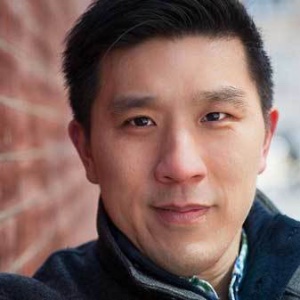4 Questions: Richard Lee
This article is part of our series 50 Years of Disruption, in celebration of the Department of Theatre’s 50th Anniversary. In it, we’ll ask each participant four questions about themselves and their time at York.
1. Who are you?

My name is Richard Lee (BFA Acting 2000).
I am an Actor, Fight Director, Sound Designer, Educator and Theatre Maker. When I graduated York in 2000, I always imagined and dreamed that I’d work in a multi-media universe, switching seamlessly from theatre to film and television. What I learned was probably further from that truth, but also so much more meaningful than I could have ever thought possible.
Don’t get me wrong, being an actor is possibly one of the most rewarding and fulfilling things that I have ever done in my life. It satisfies my soul in ways that I cannot even being to explain, and the complexity in how to become not just a good actor, but a great one is a challenge that I deeply relish. But I have never been one to sit around and wait for things, and unfortunately that is what the life of an actor can be: a place where I wait for things, projects, work to manifest so that I can ply my craft.
Over the years I have found this to be immensely unsatisfying. Perhaps that is part of the reason why I became a Fight Director (to shape stories and tell stories through violence), why I choose to practice being a Sound Designer (to be a part of relating stories through the medium of sound), and why I eventually went on to try and make theatre of my own (because I had my own story to tell). It is probably why, even now, I feel the need to create stories, and be the conduit of creating my own stories for audiences to enjoy.
The one thing I would say that has been central to my career is failing. I hate it. I hate it so much. I know that not everything I do is amazing. I know that there are performances that I have not been proud of. But that is part of the growth. That is part of my journey and I feel that even after all of my perceived failures in my life and my career, I still find myself coming back to performance. I want to learn more. I want to be better. I want nothing more than to be up there, on a stage performing.
2. What was your favourite moment during your time in the Theatre Department, and why?
I loved many things about my time at York. I considered it a time when I could just be there and absorb new skills, new ways of working, and trying my hardest to succeed. What I realize, looking back, was that it also offered me the opportunity to try things and fail miserably. It allowed me the opportunity to consider what acting meant to me, and to develop my own sense of what made me a good performer. Singers often talk about training your ear to hear yourself so that when you sing you can maintain your key or pitch. Well, what I loved best was having those “Ah-ha!” moments during my time at York, where I began to realize the things that helped to hone my inner “acting” ear. Which gave me a better gauge on the quality and accuracy of my performances.
3. What comment, quotation, statement, or action that a professor—or classmate—offered had the greatest impact on you?
Being Present. – Learning from David Rotenberg, what it meant to be “present” in a scene. I don’t think I really understood what that meant, nor how much of myself and my artistry comes from being present and allowing myself to “Be”. It’s something I still struggle with to this day. And something that I am always trying to find ways to work on.
4. Is there a way you incorporate a particular aspect of your theatre training in your current work?
I would say that York laid the foundation of how I could allow myself to be a life long learner. There is not one aspect of what I learned at York that guides me today. But the breadth of skills that I did learned helped me to be an open and versatile performer. The diversity in the type of training that I received at York, really gave me an appreciation and respect for all the different types, approaches and styles of performance that exist out there. And I think that the variety and range really allows me to approach every project with no judgement in what might happen. I feel that I am always learning and that I am always willing to push myself out of my own comfort zones to discover new things.
